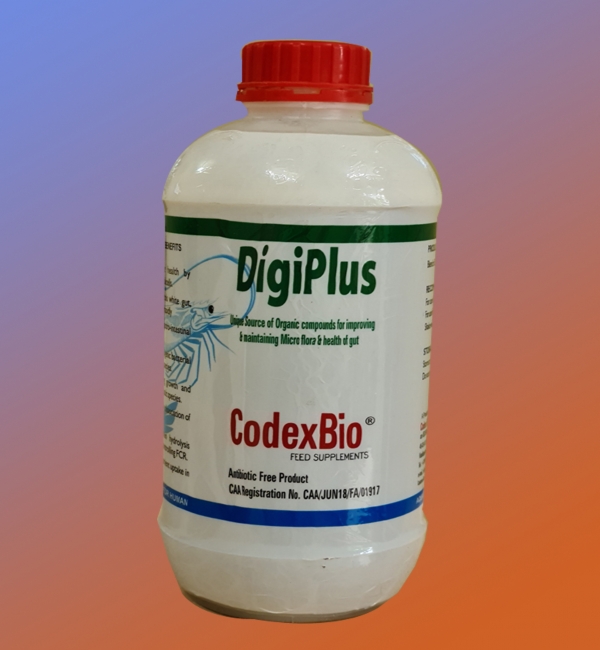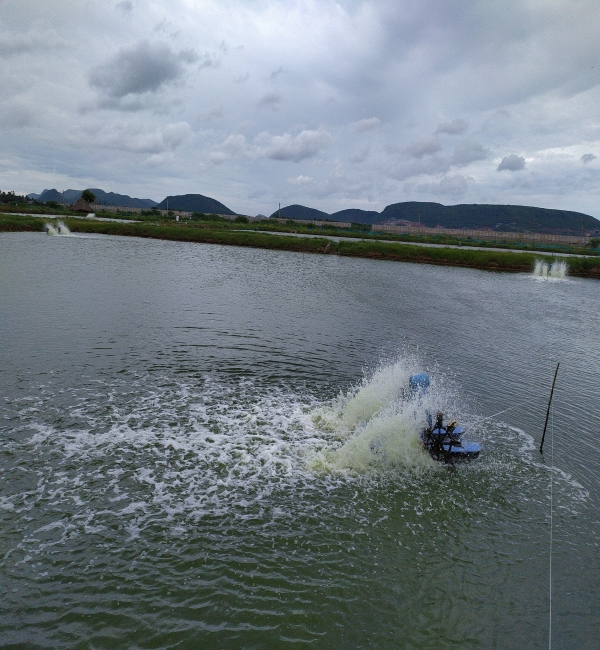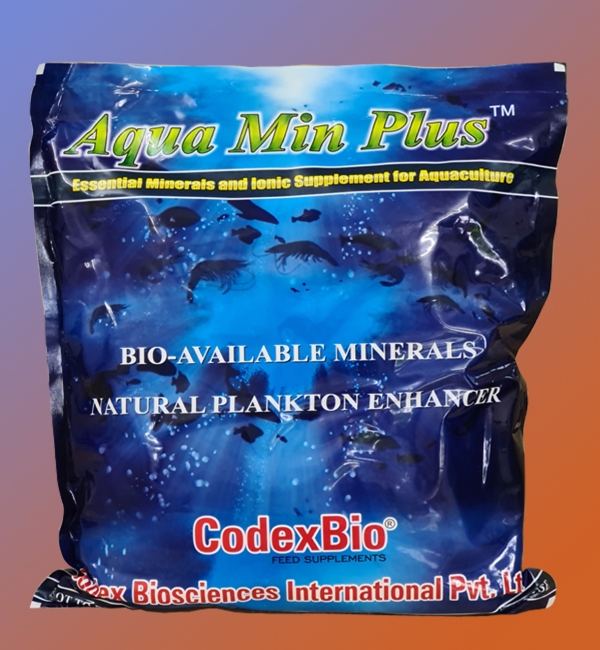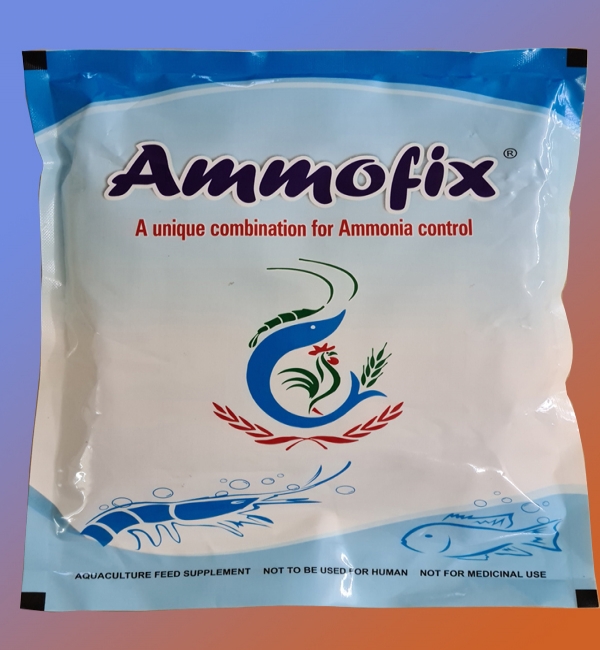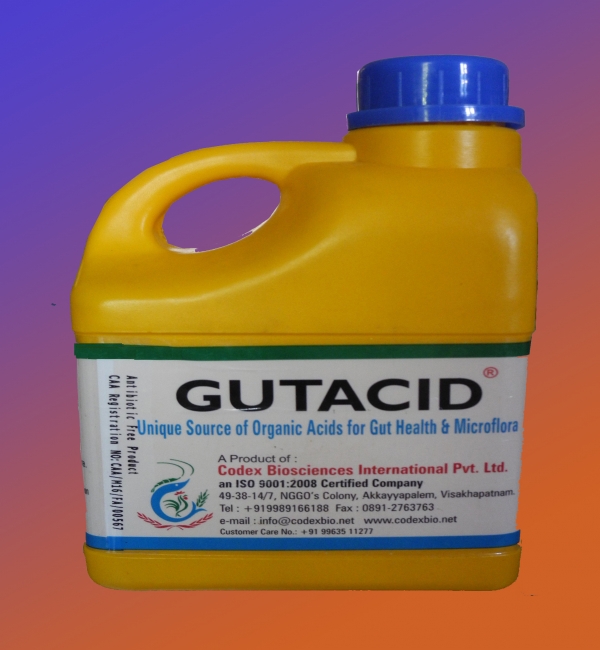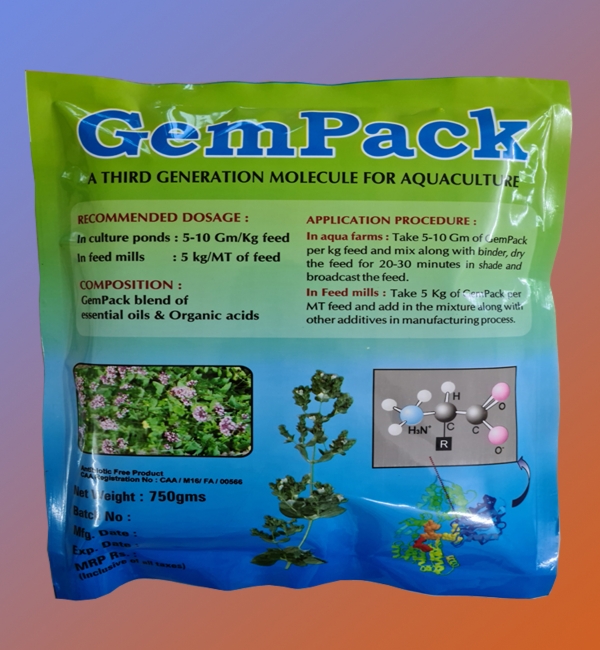Codex Biosciences International Pvt Ltd
an ISO 9001:2008 Company
Innovative Solutions For Sustainable Productivity
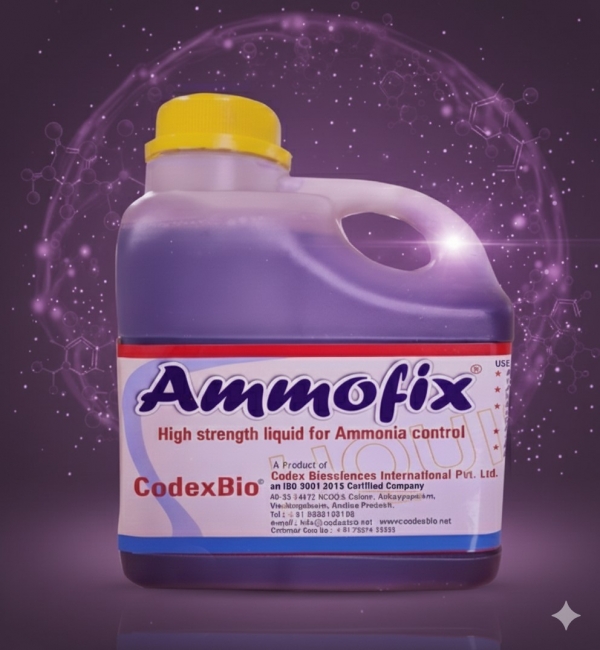
AmmoFix (TM) Liquid
CAA/JUN18/FA/01915
Pond bottom pollution is a serious concern in intensive and semi intensive aquaculture operations. Ammonia and Hydrogen Sulphide are the two toxic gases produced in the ponds by the process of decomposition & degradation of organic matter.
As the concentration of the toxic gases increases, the demand of dissolved oxygen (D0) increases in the ponds. This leads to severe stress for shrimp/fish which may gets susceptible to diseases. Therefore, management of the toxic gases is most essential to maintain good water and soil quality for successful aquaculture practices.
CODEXBIO designed AmmoFixTM to address the management of toxic gases in the aqua ponds to maintain good pond eco-system for succesful production.
Size: 1.0 Liter
- AmmoFixTM binds Ammonia, Hydrogen Sulphide, Nitrate, Nitrite and other noxious gases.
- AmmoFixTM prevents black soil formation in the pond bottom and improves water quality.
- AmmoFixTM maintains healthy phytoplankton as well as optimum BOD & COD.
- AmmoFixTM creates better environment for healthy growth of fish & shrimp in culture.
- AmmoFixTM lowers stress levels during molting and significantly reduces mortality.
- AmmoFixTM improves indirectly weight gain and FCR in cultivable aquatic species.
- AmmoFixTM inhibits urease enzyme required to produce ammonia from urea.
AmmoFix is a unique blend of pure Yucca schidigera, with facultative probiotic and enzymes.
Measure and mix Ammofix" with wet sand @ 1:100 and apply all over the pond.
In abnormal Ammonia conditions, the dosage should be doubled and suggested to mix with Zeoniex (CodexBio unique Zeolite Solution with CEC 400) and apply more quantity in the feeding zones and near by aerators.
Feed Supplement : 3-5 ml/kg of feed application
Regular application : 250 - 500 ml/ha
Abnormal conditions : 750 ml - 1.0 L/ha
- Aquaculture Feed Supplement
- Not tobe used for Human
- Not for Medicinal Use
- Not for Medicinal Use
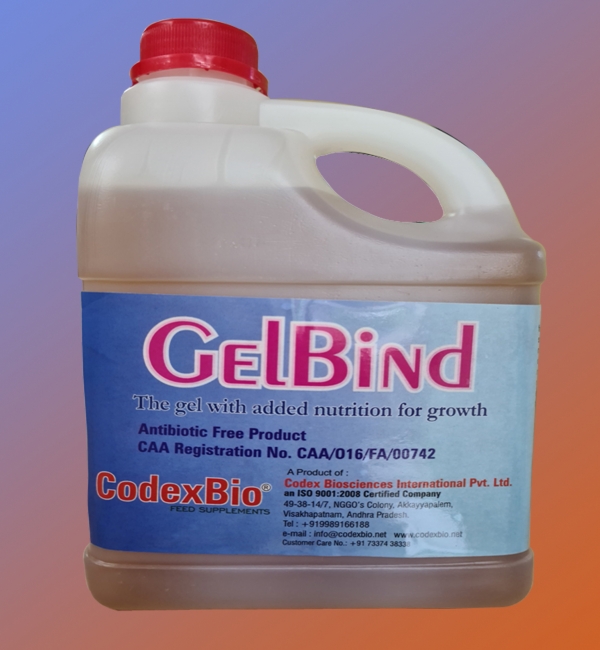
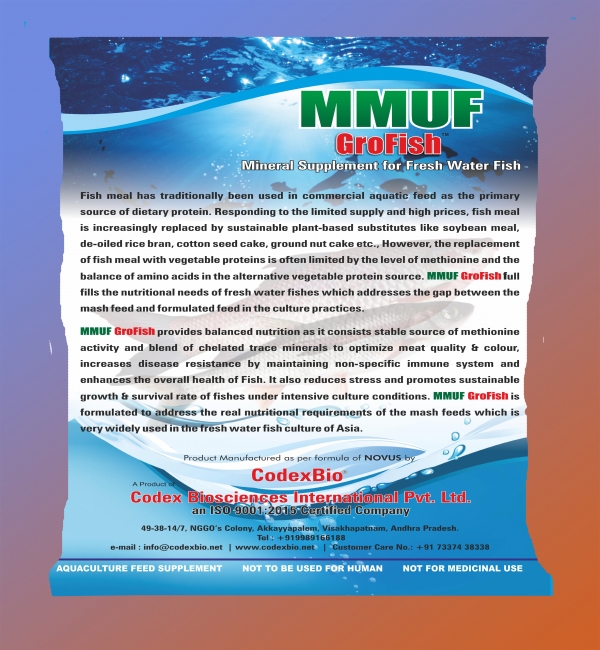
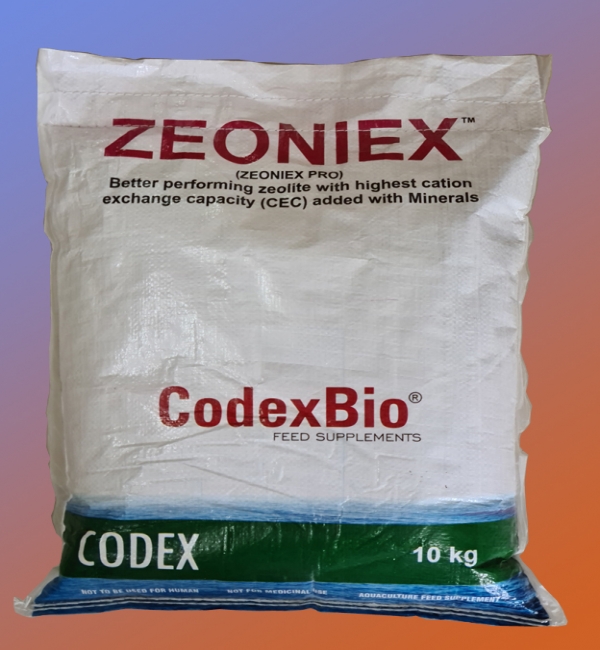
 copy.jpg)
